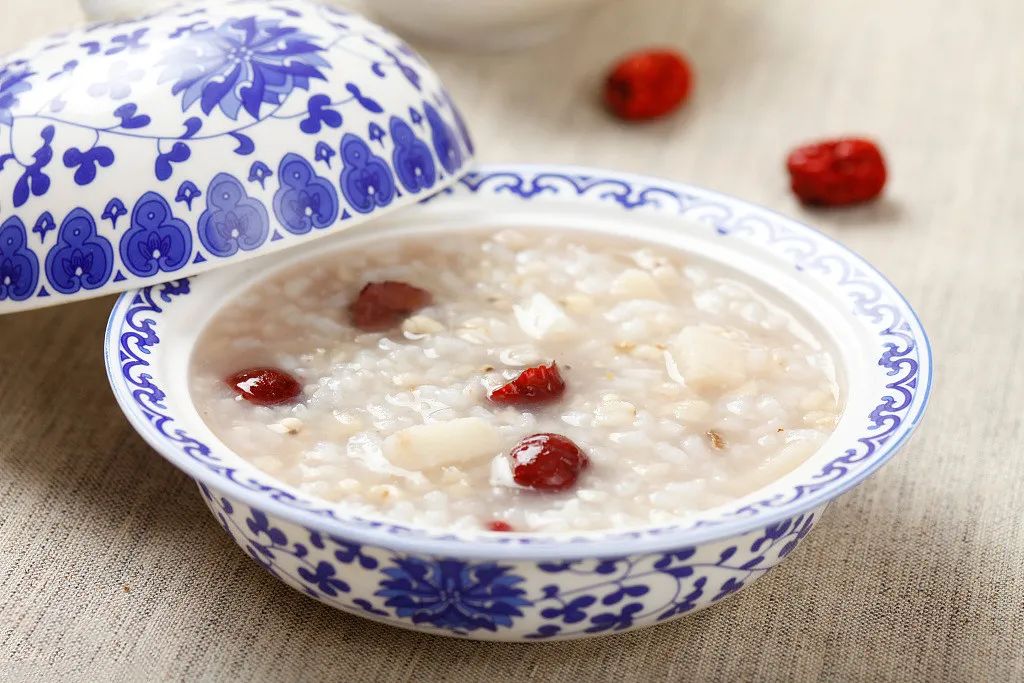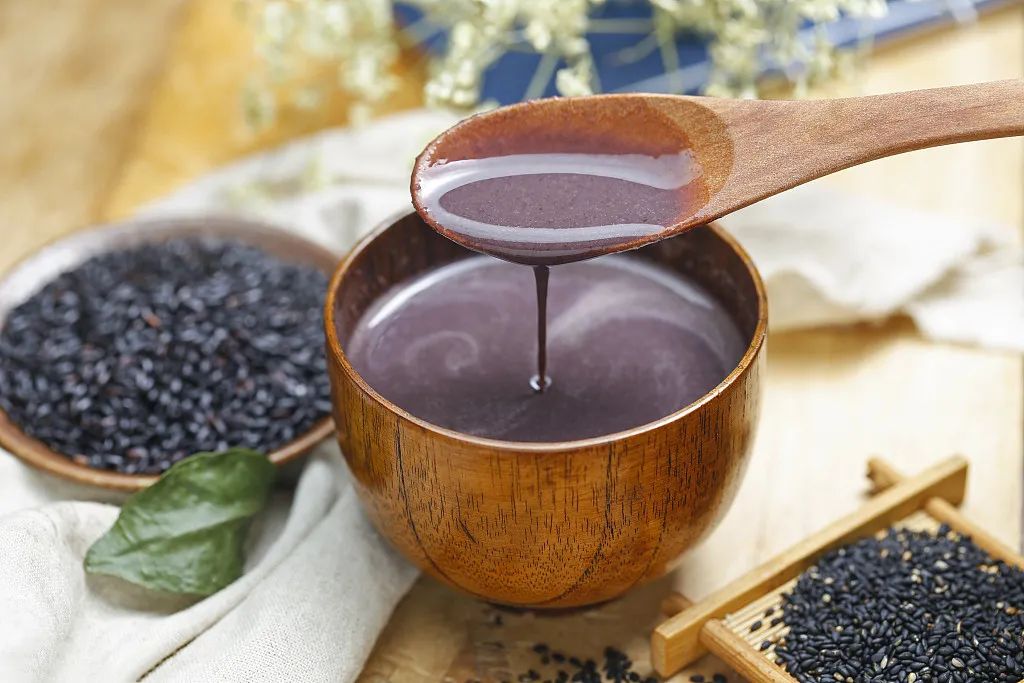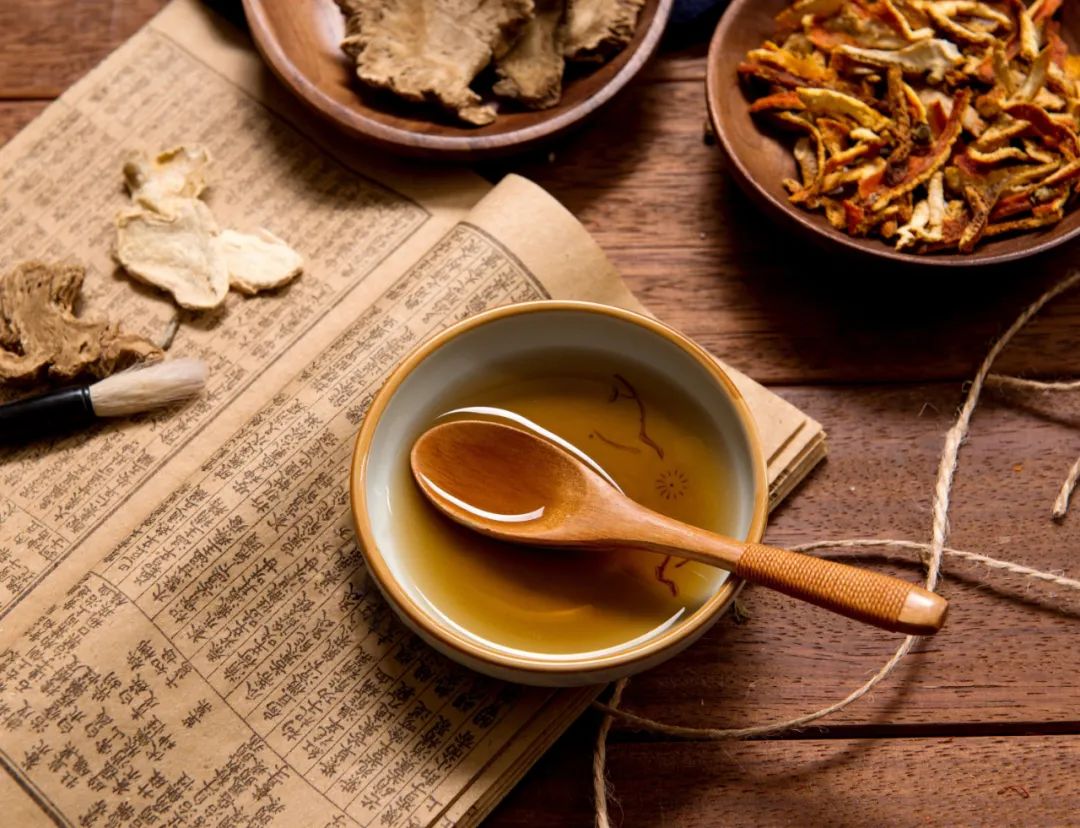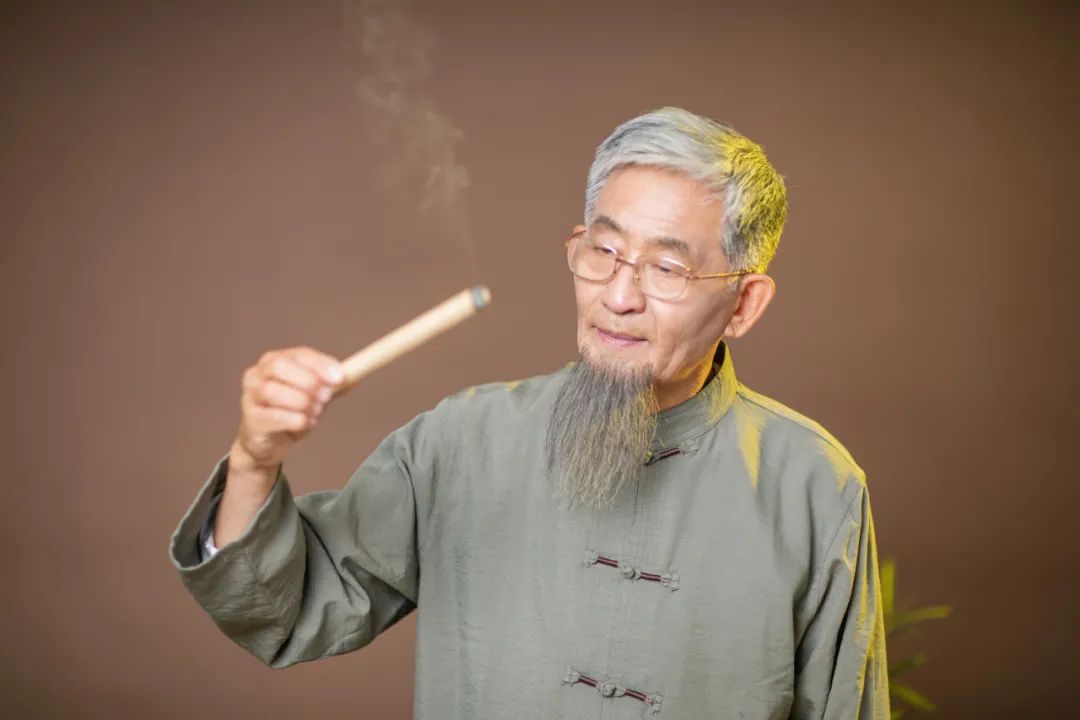Traditional Chinese Medicine (TCM) emphasizes the importance of syndrome differentiation and treatment. Without understanding which type of deficiency one belongs to, blindly supplementing can lead to symptoms such as heat excess and constipation, and in severe cases, can harm one’s health!
Today, we will discuss the concepts of “deficiency” and “supplementation,” helping you identify your type of deficiency and how to supplement correctly! Let’s begin!
1. Deficiency precedes diseaseIt is essential to understand that any illness begins with a deficiency.In simple terms, “deficiency” indicates insufficient vital energy in the body.As the saying goes, “When the vital energy is strong within, external pathogens cannot invade.” Only when the body’s vital energy is abundant can it protect against external invasions and internal disorders, preventing disease. Otherwise, in the early stages of deficiency, one may experience fatigue, lack of energy, low mood, dizziness, poor appetite, constipation or diarrhea, insomnia with vivid dreams, etc. As deficiency progresses to advanced stages, various diseases will arise.Moreover, the troublesome aspect of deficiency is that while it may not immediately impact our health significantly, it can linger and develop into chronic conditions.2. Identifying your type of deficiency TCM believes that “what is within will manifest without.” The external appearance reflects internal conditions. Only with harmonious Qi and Blood, and balanced Yin and Yang can one maintain good health; otherwise, not only will one become ill, but they may also appear older. Deficiency particularly affects women more significantly.TCM categorizes deficiency into four types: Qi deficiency, Blood deficiency, Yin deficiency, and Yang deficiency.
TCM believes that “what is within will manifest without.” The external appearance reflects internal conditions. Only with harmonious Qi and Blood, and balanced Yin and Yang can one maintain good health; otherwise, not only will one become ill, but they may also appear older. Deficiency particularly affects women more significantly.TCM categorizes deficiency into four types: Qi deficiency, Blood deficiency, Yin deficiency, and Yang deficiency. 1Qi Deficiency: WeaknessQi deficiency is akin to insufficient fuel for the body, leading to a lack of energy.Qi comes from three sources: the innate essence (Shen) from the kidneys, the postnatal essence from food and drink (Spleen and Stomach), and the air we breathe (Lungs). Therefore, Qi deficiency generally includes three aspects: Kidney deficiency, Spleen deficiency, and Lung deficiency.Main manifestations:The most significant characteristic of Qi deficiency is “laziness”—laziness to speak, laziness to move. Additionally, fatigue, spontaneous sweating, and shortness of breath are common symptoms of Qi deficiency.The Spleen governs the transformation and transportation of fluids; if Spleen Qi is deficient, its ability to transform fluids decreases, leading to Spleen dampness. Thus, individuals with Qi deficiency often exhibit symptoms of Spleen dampness, such as a scalloped tongue.Furthermore, Qi deficiency leads to an inability to hold the stool, resulting in loose stools; those with Qi deficiency often experience abdominal distension, belching, and even nausea.Additionally, individuals with Qi deficiency are generally sensitive to cold and prone to catching colds easily.Regulation methods:The approach to regulating Qi deficiency is to tonify and supplement Qi.Foods beneficial for Qi deficiency include: Shan Yao (Chinese Yam), Fu Ling (Poria), Yi Yi Ren (Job’s Tears), Bai Bian Dou (White Hyacinth Bean), chicken, and Da Zao (Jujube), which can be alternated regularly.Foods to avoid for Qi deficiency: Shan Zha (Hawthorn), garlic, coriander (Cilantro), and mint.Recommended dishes: Huai Shan Bai He Lian Zi Tang (Chinese Yam, Lily, and Lotus Seed Soup); Shan Yao Yi Yi Ren Qian Shi Zhou (Chinese Yam, Job’s Tears, and Qian Shi Porridge).
1Qi Deficiency: WeaknessQi deficiency is akin to insufficient fuel for the body, leading to a lack of energy.Qi comes from three sources: the innate essence (Shen) from the kidneys, the postnatal essence from food and drink (Spleen and Stomach), and the air we breathe (Lungs). Therefore, Qi deficiency generally includes three aspects: Kidney deficiency, Spleen deficiency, and Lung deficiency.Main manifestations:The most significant characteristic of Qi deficiency is “laziness”—laziness to speak, laziness to move. Additionally, fatigue, spontaneous sweating, and shortness of breath are common symptoms of Qi deficiency.The Spleen governs the transformation and transportation of fluids; if Spleen Qi is deficient, its ability to transform fluids decreases, leading to Spleen dampness. Thus, individuals with Qi deficiency often exhibit symptoms of Spleen dampness, such as a scalloped tongue.Furthermore, Qi deficiency leads to an inability to hold the stool, resulting in loose stools; those with Qi deficiency often experience abdominal distension, belching, and even nausea.Additionally, individuals with Qi deficiency are generally sensitive to cold and prone to catching colds easily.Regulation methods:The approach to regulating Qi deficiency is to tonify and supplement Qi.Foods beneficial for Qi deficiency include: Shan Yao (Chinese Yam), Fu Ling (Poria), Yi Yi Ren (Job’s Tears), Bai Bian Dou (White Hyacinth Bean), chicken, and Da Zao (Jujube), which can be alternated regularly.Foods to avoid for Qi deficiency: Shan Zha (Hawthorn), garlic, coriander (Cilantro), and mint.Recommended dishes: Huai Shan Bai He Lian Zi Tang (Chinese Yam, Lily, and Lotus Seed Soup); Shan Yao Yi Yi Ren Qian Shi Zhou (Chinese Yam, Job’s Tears, and Qian Shi Porridge). 2Blood Deficiency: DrynessBlood deficiency is akin to insufficient nourishment for the body, leading to dryness and malnutrition.When Qi deficiency persists, it can lead to insufficient blood production; Qi and Blood are interdependent, and Qi generates Blood. Thus, over time, Blood becomes deficient as well.Blood deficiency is often related to the Spleen and Stomach, which are responsible for the transformation and generation of Qi and Blood; if their function is weak, blood production will be insufficient.Main manifestations:Symptoms include a pale or sallow complexion, pale lips, dizziness, dry eyes, which are due to insufficient Liver Blood.Fingernails may appear pale, skin may be dry, and symptoms of Qi deficiency may also be present.During the day, one may experience palpitations, chest tightness, forgetfulness, and at night, insomnia with vivid dreams and poor sleep quality.Regulation methods:Tonifying Qi and nourishing Blood are key to regulating Blood deficiency!Foods beneficial for Blood deficiency include: Hei Zhi Ma (Black Sesame), Hong Dou (Red Bean), Hong Yi Hua Sheng (Red-skinned Peanut), Da Zao (Jujube), Long Yan (Longan), and Chi Dou (Adzuki Bean).Foods to avoid for Blood deficiency: Bi Li (Water Chestnut), garlic, chrysanthemum, and white wine; avoid spicy and drying foods.Recommended dishes: Gui Yuan Dang Gui Ji Tang (Longan and Angelica Chicken Soup).
2Blood Deficiency: DrynessBlood deficiency is akin to insufficient nourishment for the body, leading to dryness and malnutrition.When Qi deficiency persists, it can lead to insufficient blood production; Qi and Blood are interdependent, and Qi generates Blood. Thus, over time, Blood becomes deficient as well.Blood deficiency is often related to the Spleen and Stomach, which are responsible for the transformation and generation of Qi and Blood; if their function is weak, blood production will be insufficient.Main manifestations:Symptoms include a pale or sallow complexion, pale lips, dizziness, dry eyes, which are due to insufficient Liver Blood.Fingernails may appear pale, skin may be dry, and symptoms of Qi deficiency may also be present.During the day, one may experience palpitations, chest tightness, forgetfulness, and at night, insomnia with vivid dreams and poor sleep quality.Regulation methods:Tonifying Qi and nourishing Blood are key to regulating Blood deficiency!Foods beneficial for Blood deficiency include: Hei Zhi Ma (Black Sesame), Hong Dou (Red Bean), Hong Yi Hua Sheng (Red-skinned Peanut), Da Zao (Jujube), Long Yan (Longan), and Chi Dou (Adzuki Bean).Foods to avoid for Blood deficiency: Bi Li (Water Chestnut), garlic, chrysanthemum, and white wine; avoid spicy and drying foods.Recommended dishes: Gui Yuan Dang Gui Ji Tang (Longan and Angelica Chicken Soup). 3Yin Deficiency: HeatYin deficiency equates to insufficient fluids and moisture, leading to dryness and heat.Main manifestations:Yin deficiency generates internal heat, where the surface may not feel hot, but internally there is heat. The most typical characteristic is dryness!Individuals with Yin deficiency often experience afternoon heat, five-center heat, and dry mouth.Regulation methods:Regulating Yin deficiency requires focusing on tonifying Qi and nourishing Yin.Foods beneficial for Yin deficiency include: Gou Qi Zi (Goji Berries), pears, Bai He (Lily), lotus root, duck meat, and Bi Li (Water Chestnut).Foods to avoid for Yin deficiency: pepper, cinnamon, and avoid spicy and drying foods.Recommended dishes: Bai He Yin Er Zhou (Lily and Tremella Porridge).
3Yin Deficiency: HeatYin deficiency equates to insufficient fluids and moisture, leading to dryness and heat.Main manifestations:Yin deficiency generates internal heat, where the surface may not feel hot, but internally there is heat. The most typical characteristic is dryness!Individuals with Yin deficiency often experience afternoon heat, five-center heat, and dry mouth.Regulation methods:Regulating Yin deficiency requires focusing on tonifying Qi and nourishing Yin.Foods beneficial for Yin deficiency include: Gou Qi Zi (Goji Berries), pears, Bai He (Lily), lotus root, duck meat, and Bi Li (Water Chestnut).Foods to avoid for Yin deficiency: pepper, cinnamon, and avoid spicy and drying foods.Recommended dishes: Bai He Yin Er Zhou (Lily and Tremella Porridge). 4Yang Deficiency: Cold SensitivityYang deficiency equates to insufficient warmth, leading to a feeling of cold.Main manifestations:Yang deficiency is a further development of Qi deficiency; individuals with Yang deficiency have a reduced ability to resist wind and cold, with the most typical characteristic being: cold sensitivity!Frequent consumption of cold foods and aging can also lead to a Yang deficiency constitution.Yang deficiency generally manifests in the Spleen and Kidneys, leading to symptoms such as cold pain in the lower back and knees.Additionally, individuals with Yang deficiency often have cold hands and feet, especially severe in winter. Eating cold foods or being exposed to cold winds can easily lead to diarrhea, with a pale, swollen tongue and a pale complexion, often appearing thin. Slight exercise can lead to palpitations and shortness of breath.Regulation methods:So, what should one do for Yang deficiency? Bai Zhu (White Atractylodes) suggests focusing on warming Yang and dispelling cold.Foods beneficial for Yang deficiency include: lamb, longan, cinnamon, and fennel, which can be alternated regularly.Foods to avoid for Yang deficiency: duck meat, rabbit meat, and avoid raw and cold foods.Recommended dishes: Chestnut and Walnut Stewed Old Chicken, Dang Gui Yang Rou Geng (Angelica and Lamb Soup).3. What to do if you have multiple deficiencies?
4Yang Deficiency: Cold SensitivityYang deficiency equates to insufficient warmth, leading to a feeling of cold.Main manifestations:Yang deficiency is a further development of Qi deficiency; individuals with Yang deficiency have a reduced ability to resist wind and cold, with the most typical characteristic being: cold sensitivity!Frequent consumption of cold foods and aging can also lead to a Yang deficiency constitution.Yang deficiency generally manifests in the Spleen and Kidneys, leading to symptoms such as cold pain in the lower back and knees.Additionally, individuals with Yang deficiency often have cold hands and feet, especially severe in winter. Eating cold foods or being exposed to cold winds can easily lead to diarrhea, with a pale, swollen tongue and a pale complexion, often appearing thin. Slight exercise can lead to palpitations and shortness of breath.Regulation methods:So, what should one do for Yang deficiency? Bai Zhu (White Atractylodes) suggests focusing on warming Yang and dispelling cold.Foods beneficial for Yang deficiency include: lamb, longan, cinnamon, and fennel, which can be alternated regularly.Foods to avoid for Yang deficiency: duck meat, rabbit meat, and avoid raw and cold foods.Recommended dishes: Chestnut and Walnut Stewed Old Chicken, Dang Gui Yang Rou Geng (Angelica and Lamb Soup).3. What to do if you have multiple deficiencies? Individuals with deficiencies often exhibit multiple types of deficiency, primarily including the following:Yin and Yang Deficiency:Feeling cold and hot simultaneously, particularly sensitive to cold in winter and heat in summer; supplementation should focus on both Yin and Yang, nourishing Yin and warming Yang, and other methods.Qi and Blood Deficiency:This generally occurs in individuals after anemia or significant blood loss, exhibiting characteristics of both Qi deficiency and Blood deficiency; supplementation should focus on tonifying Qi and nourishing Blood, and methods that address both.Qi and Yin Deficiency:Exhibiting symptoms of Qi deficiency such as dizziness, fatigue, and weakness, along with symptoms of Yin deficiency such as heat, dry throat, and red tongue; supplementation should consider both Qi and Yin.However, even though individuals with deficiencies often exhibit multiple types, the order of severity may vary. It is advisable to identify the root cause, such as which symptoms were initially predominant, before deciding on a regulation approach.4. Moxibustion for Regulating Deficiency Syndromes
Individuals with deficiencies often exhibit multiple types of deficiency, primarily including the following:Yin and Yang Deficiency:Feeling cold and hot simultaneously, particularly sensitive to cold in winter and heat in summer; supplementation should focus on both Yin and Yang, nourishing Yin and warming Yang, and other methods.Qi and Blood Deficiency:This generally occurs in individuals after anemia or significant blood loss, exhibiting characteristics of both Qi deficiency and Blood deficiency; supplementation should focus on tonifying Qi and nourishing Blood, and methods that address both.Qi and Yin Deficiency:Exhibiting symptoms of Qi deficiency such as dizziness, fatigue, and weakness, along with symptoms of Yin deficiency such as heat, dry throat, and red tongue; supplementation should consider both Qi and Yin.However, even though individuals with deficiencies often exhibit multiple types, the order of severity may vary. It is advisable to identify the root cause, such as which symptoms were initially predominant, before deciding on a regulation approach.4. Moxibustion for Regulating Deficiency Syndromes Ancient wisdom states: “If there is deficiency, supplement it.” To regulate deficiency syndromes, one can use food supplementation, considering the principle that “deficiency does not accept supplementation,” one can also use the method of “moxibustion before supplementation.”The “Introduction to Medicine” states: “For deficiencies, moxibustion is used to assist the original Yang; for excess, moxibustion is used to disperse the excess evil; for cold, moxibustion is used to warm the Qi; thus, moxibustion can regulate various deficiency syndromes.Qi deficiency:Moxibustion at Qi Hai (CV6), Guan Yuan (CV4), and Zu San Li (ST36) for 5-10 minutes each.Blood deficiency:Moxibustion at Zhong Wan (CV12), Xue Hai (SP10), and Zu San Li (ST36) for 5-10 minutes each.Yin deficiency:Moxibustion at Yong Quan (KD1), Tai Xi (KD3), and Zhao Hai (SP6) for 5-10 minutes each. “For those with Yin deficiency and excess heat, it is recommended to nourish Yin first, and after the heat symptoms subside, then apply moxibustion.”Yang deficiency:Moxibustion at Da Zhui (GV14), Ming Men (GV4), and Guan Yuan (CV4) for 5-10 minutes each.TCM believes that Qi, Blood, Yin, and Yang can transform into one another or appear simultaneously. Therefore, if you find it difficult to differentiate, it is advisable to seek diagnosis from an experienced TCM practitioner.
Ancient wisdom states: “If there is deficiency, supplement it.” To regulate deficiency syndromes, one can use food supplementation, considering the principle that “deficiency does not accept supplementation,” one can also use the method of “moxibustion before supplementation.”The “Introduction to Medicine” states: “For deficiencies, moxibustion is used to assist the original Yang; for excess, moxibustion is used to disperse the excess evil; for cold, moxibustion is used to warm the Qi; thus, moxibustion can regulate various deficiency syndromes.Qi deficiency:Moxibustion at Qi Hai (CV6), Guan Yuan (CV4), and Zu San Li (ST36) for 5-10 minutes each.Blood deficiency:Moxibustion at Zhong Wan (CV12), Xue Hai (SP10), and Zu San Li (ST36) for 5-10 minutes each.Yin deficiency:Moxibustion at Yong Quan (KD1), Tai Xi (KD3), and Zhao Hai (SP6) for 5-10 minutes each. “For those with Yin deficiency and excess heat, it is recommended to nourish Yin first, and after the heat symptoms subside, then apply moxibustion.”Yang deficiency:Moxibustion at Da Zhui (GV14), Ming Men (GV4), and Guan Yuan (CV4) for 5-10 minutes each.TCM believes that Qi, Blood, Yin, and Yang can transform into one another or appear simultaneously. Therefore, if you find it difficult to differentiate, it is advisable to seek diagnosis from an experienced TCM practitioner.

